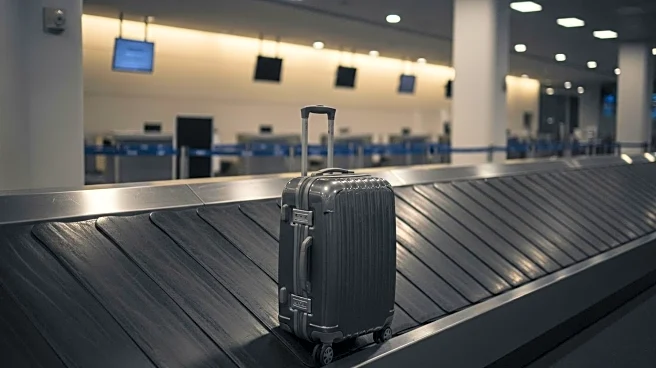What's Happening?
The U.S. Travel Association has issued a warning about the severe economic impact a government shutdown could have on the travel industry. In a letter to Congressional leaders, President and CEO Geoff Freeman emphasized that a shutdown would cost the travel economy $1 billion every week. This loss is attributed to disruptions in air and rail travel, as well as the closure of national parks and museums. A survey conducted by Ipsos reveals that 60% of Americans would cancel or avoid air travel if a shutdown occurs, and 81% believe it would harm the economy. The association is urging Congress to act before October 1 to prevent these disruptions and protect jobs and the economy.
Why It's Important?
The potential government shutdown poses a significant threat to the U.S. travel industry, which is a vital component of the national economy. The loss of $1 billion weekly could lead to widespread economic repercussions, affecting millions of travelers and businesses. The shutdown would exacerbate existing challenges faced by the federal travel workforce, leading to longer TSA lines, flight delays, and cancellations. Additionally, the closure of national parks and museums would impact tourism and local economies reliant on these attractions. The survey indicates strong public sentiment against the shutdown, with 88% of Americans urging bipartisan cooperation to avoid it.
What's Next?
If Congress fails to act by October 1, the government shutdown will likely lead to immediate disruptions in travel services and infrastructure. This could result in increased pressure on lawmakers to find a resolution, as public dissatisfaction grows. The travel industry and related stakeholders may intensify lobbying efforts to ensure government funding is secured. The longer the shutdown persists, the more severe the economic and operational impacts will be, potentially prompting emergency measures to mitigate damage.
Beyond the Headlines
The potential shutdown highlights broader issues of political gridlock and its impact on essential services. It raises questions about the effectiveness of current legislative processes and the ability of Congress to address critical economic challenges. The situation underscores the need for long-term solutions to prevent recurring shutdowns and ensure stability in key sectors like travel.









